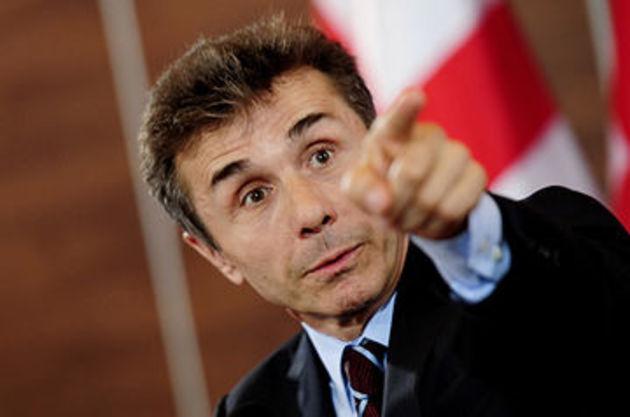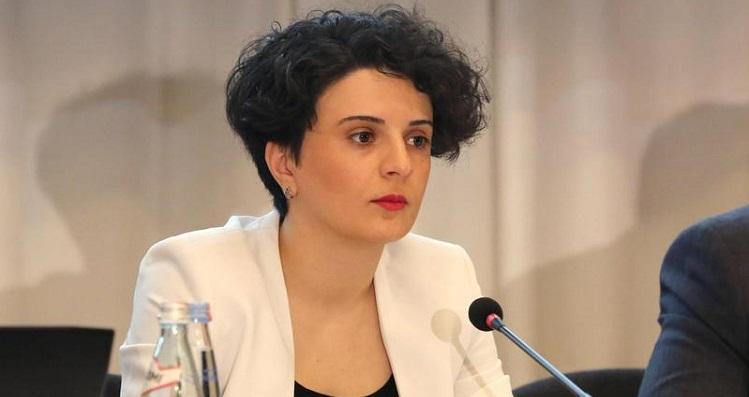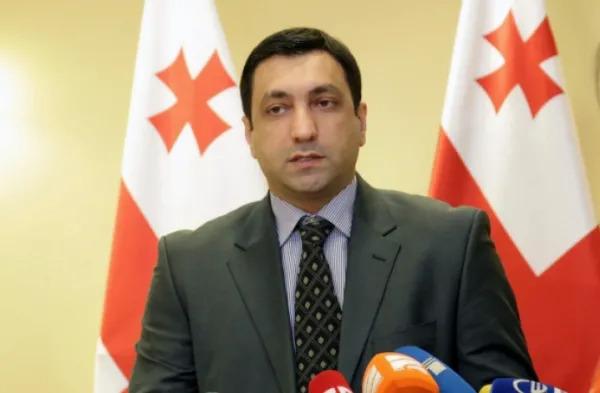Georgia: Ruling GD leader’s campaign speech stresses political rift ahead of crucial polls Opposition decries ruling party's rhetoric
On August 21, in a carefully orchestrated event, Bidzina Ivanishvili, the leader of the ruling Georgian Dream (GD), delivered a speech from an armored glass enclosure in Mtskheta, Georgia’s ancient capital. This event marked a significant moment in Georgia’s pre-election period, with Ivanishvili’s rhetoric drawing sharp criticism from opposition leaders and raising concerns about the country’s political trajectory.
Campaign message from the "Aquarium"
Bidzina Ivanishvili’s choice to speak from an armored glass enclosure, referred to as the "aquarium," was symbolic of the growing divide between the ruling party and the opposition. This setting drew parallels with US Presidential candidate Donald Trump's use of a similar enclosure following an assassination attempt, a comparison that opposition leaders did not hesitate to make.

The armored glass seemed to represent the GD’s defensive posture, both physically and politically. The opposition quickly seized on this imagery to criticize the ruling party’s approach, suggesting that it symbolizes a government disconnected from the people and besieged by its fears.
Threat of constitutional changes
Bidzina Ivanishvili, the founder of Georgia's ruling party, Georgian Dream, delivered a campaign speech in Mtskheta, urging support for the party in the October 26, 2024, parliamentary elections. He reiterated Georgian Dream’s intent to ban the opposition United National Movement (UNM), founded by jailed former President Mikheil Saakashvili, and condemned "LGBT propaganda" as part of the party's conservative agenda.
Ivanishvili framed the election as a stark choice between "war and peace, slavery and freedom, moral decline, and Christian values," likening the vote to a "Nuremberg trial" for the UNM, underscoring his party’s commitment to safeguarding Georgia’s future.
A significant portion of Ivanishvili’s speech focused on the possibility of constitutional changes, which he argued were necessary to restore Georgia’s territorial integrity. He implied that the current governance structure might need to be revised under these conditions, a stance that hints at a potential power grab by the ruling party.

Ivanishvili’s assertion that the opposition, particularly the United National Movement (UNM) and its affiliates, would obstruct these efforts, underscores the GD’s strategy of painting the opposition as anti-national. By framing the elections as a referendum on national integrity, Ivanishvili is pushing a narrative that seeks to consolidate power within the GD by marginalizing the opposition.
The reference to a constitutional majority as a tool to rid the country of the “serious disease” posed by the opposition indicates a troubling shift towards authoritarianism. The GD’s rhetoric, which equates political opposition with national betrayal, is a significant escalation in Georgia’s political discourse.
Opposition reaction: A divisive narrative
Opposition leaders were quick to respond to Ivanishvili’s speech, condemning both the content and the manner in which it was delivered. Nika Gvaramia, co-chair of the Coalition for Change, dismissed the speech as further evidence of the GD’s disconnect from the Georgian people, criticizing Ivanishvili for addressing the nation from behind a glass barrier.
Mamuka Khazaradze, leader of the Lelo party, also criticized Ivanishvili’s rhetoric, framing the upcoming elections as a referendum on the GD’s failures rather than a choice between war and peace. Khazaradze’s remarks emphasized the economic and social issues facing Georgia, accusing the ruling party of using fear and division to distract from its inability to govern effectively.
Natia Mezvrishvili of the For Georgia party echoed these sentiments, highlighting the sense of fear and desperation that she perceives within the GD. Mezvrishvili’s critique focused on the ruling party’s apparent lack of new ideas and its reliance on a divisive narrative to maintain power.

Levan Bezhashvili of the United National Movement went further, accusing the GD of attempting to silence dissent and undermine democratic institutions. His comments reflect a broader concern within the opposition that the ruling party is using the threat of constitutional changes to entrench its power and eliminate political competition.

A contested vision of Georgia’s future
Ivanishvili’s speech also addressed social issues, particularly the GD’s stance on LGBT rights. His call for a constitutional ban on LGBT rights, including same-sex civil partnerships, adoption by LGBT couples, and sex change operations, was framed as a defense of traditional Christian values against what he described as "anti-Christian forces".
This rhetoric, which aligns with similar conservative movements across Eastern Europe, is part of the GD’s broader strategy to appeal to Georgia’s religious and socially conservative electorate. However, it also deepens the divide between the ruling party and more progressive elements of Georgian society, who view these positions as a violation of human rights and an attempt to roll back social progress.
Ivanishvili’s framing of the upcoming elections as a choice between "moral degradation" and "Christian values" is indicative of the polarized political environment in Georgia. This binary framing simplifies complex issues into a stark choice, leaving little room for nuanced debate or compromise.
Implications of Ivanishvili’s vision
The implications of Ivanishvili’s speech are profound. By positioning the GD as the sole defender of Georgia’s national integrity and traditional values, he is attempting to monopolize the narrative around the country’s future. This approach not only marginalizes the opposition but also sets the stage for a potentially contentious and divisive election.
The opposition’s response, which highlights the GD’s reliance on fear and division, underscores the stakes of the upcoming elections. If Ivanishvili’s vision is realized, it could lead to significant changes in Georgia’s political landscape, with the GD consolidating power at the expense of democratic institutions and political pluralism.
The upcoming elections, therefore, are not just a test of the GD’s popularity but a referendum on the future of Georgian democracy. As Ivanishvili himself noted, these elections are about "saving the country". However, the question remains: whose vision of the country will prevail? The answer will have far-reaching consequences for Georgia’s political and social future.








